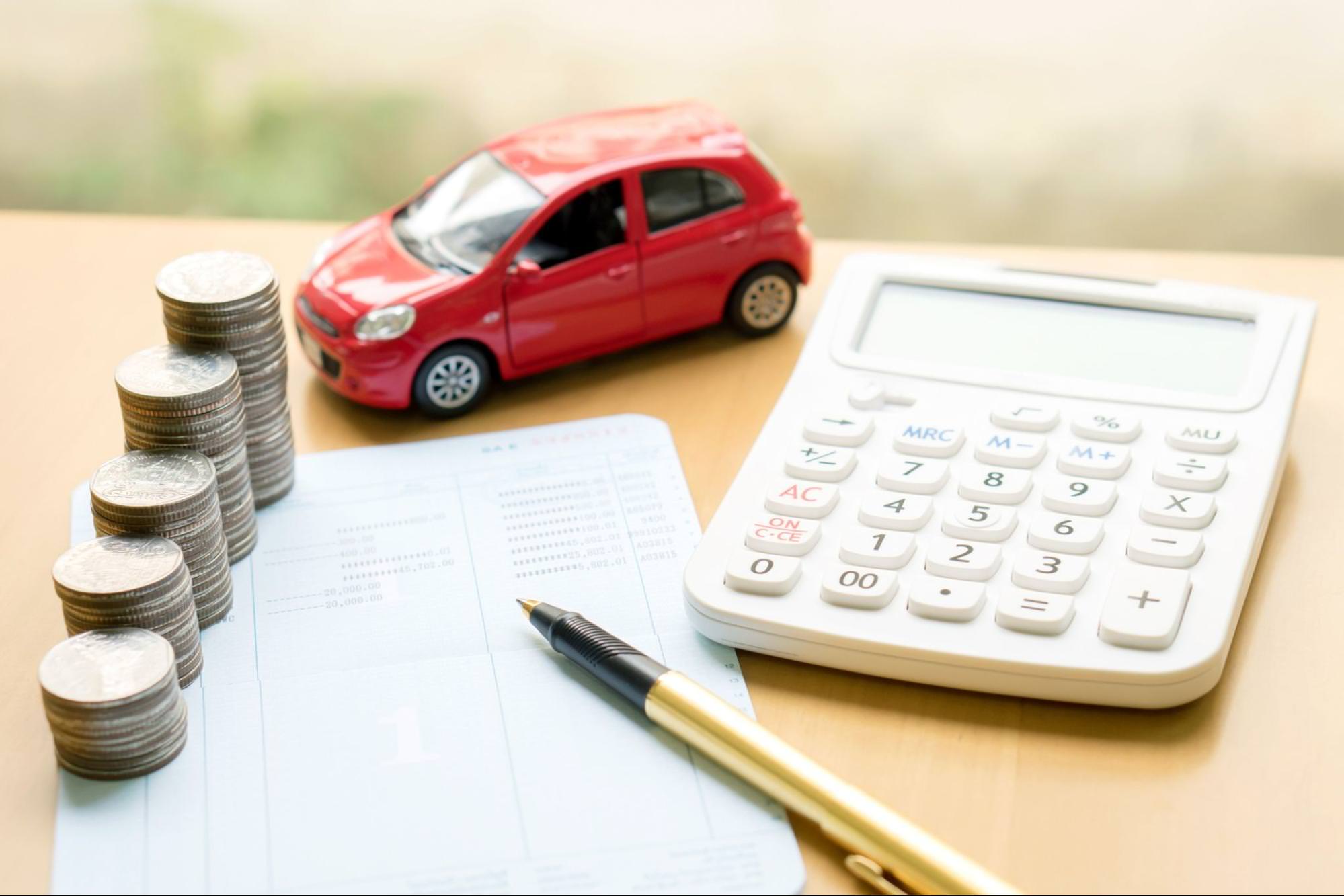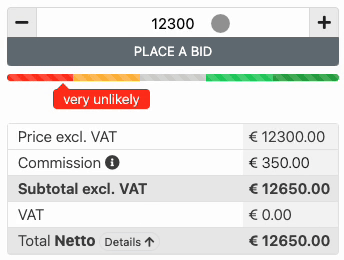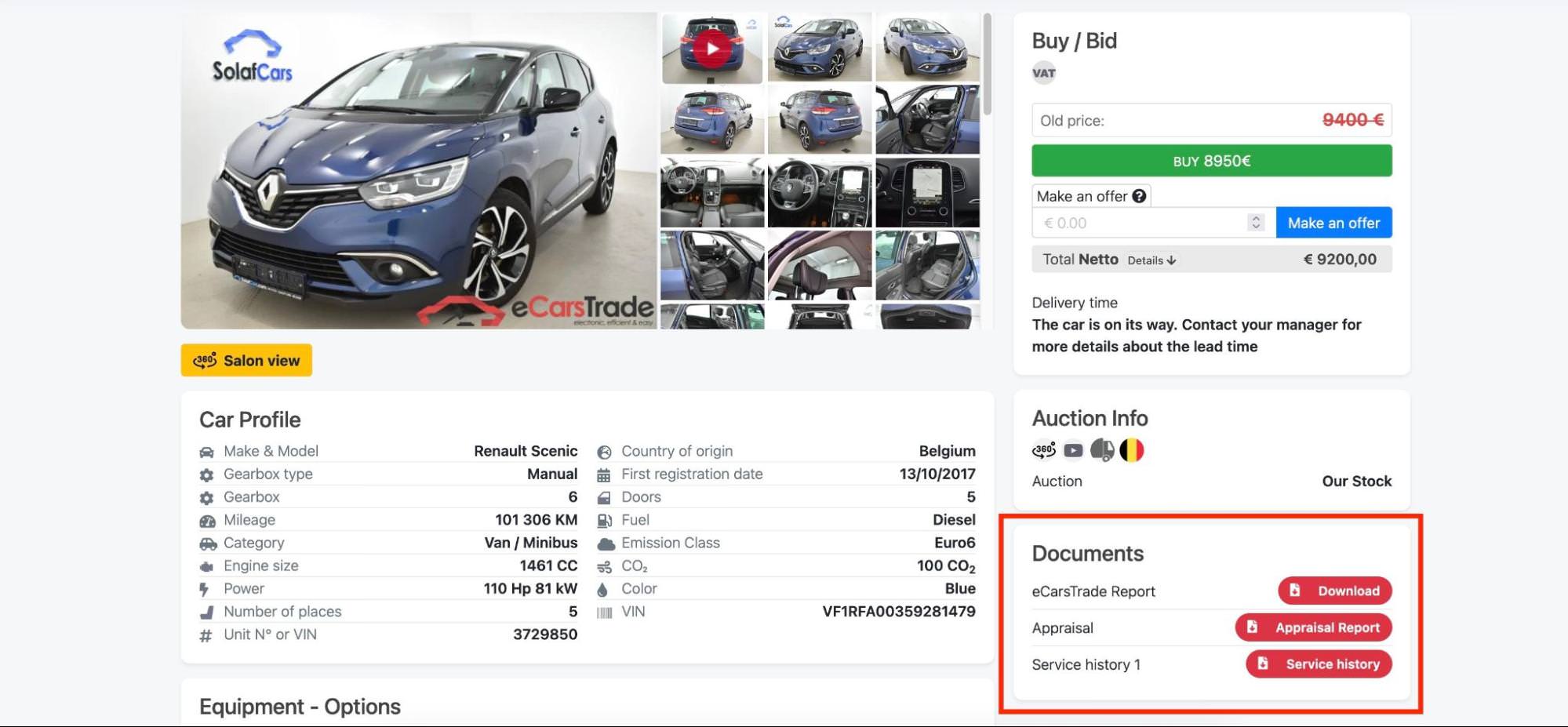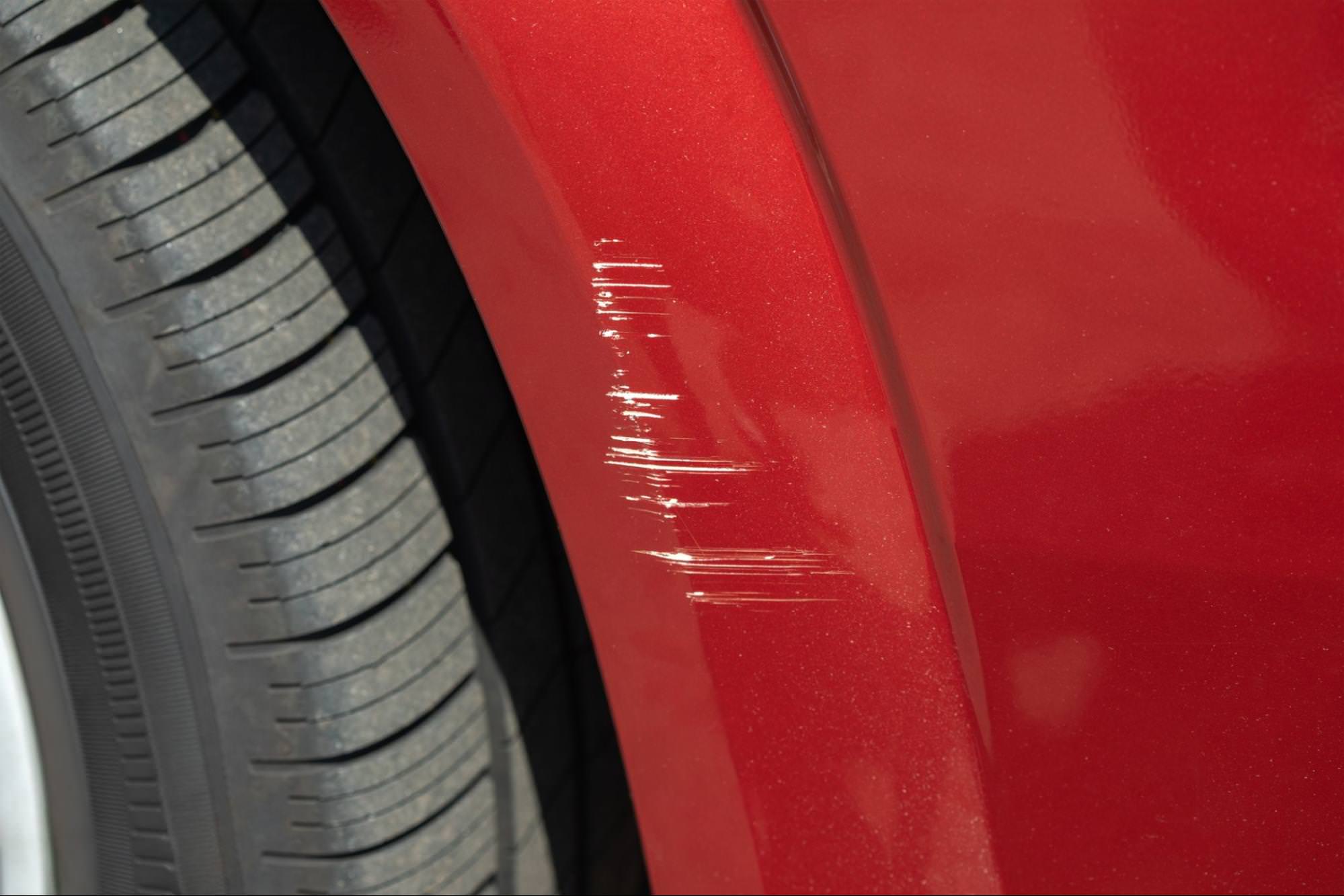- Blog
- What Impacts the Value of a Used Car and How to Price It Right?
What Impacts the Value of a Used Car and How to Price It Right?
Learn how to accurately value and price used cars for your dealership. Discover key factors, effective strategies, and tools to boost profitability and customer trust.

In the fast-paced world of used car sales, getting your pricing right can make or break your business. It's not just about making up a random number and hoping for the best.
As a car trader, you need to understand all the factors that influence a vehicle's value and how to translate that into a pricing strategy that works for both you and your customers.
In this article, we'll break down the key factors that impact used car values and provide you with practical tools and techniques to help you make informed decisions.
Accurate price valuation is crucial for used car dealers
Accurate pricing is the foundation of your business. When you get it right, everything else falls into place. Your inventory moves at a healthy pace, your customers are satisfied, and your profits remain steady.
So why exactly is precise valuation so critical?
- Profitability: This one is obvious, right? Price too low, and you're leaving money on the table. Price too high, and cars sit on your lot, tying up capital and increasing expenses. Accurate valuation helps you find that sweet spot where you maximize your profits without turning away potential buyers.
- Customer trust: In the age of internet pricing, transparency is key. When your prices are fair and consistent, customers feel confident doing business with you. They're more likely to become repeat buyers and recommend you to others. eCarsTrade commission and cost calculator is how we prioritize transparency - customers are able to see the final cost of the car with all fees included even before they place a bid.

- Inventory management: Knowing the true value of your inventory helps you make smarter purchasing decisions. You'll know when to jump on a good deal at an auction and when to walk away.
- Negotiation power: When you're confident in your pricing, you're in a stronger position during negotiations. You can justify your prices with facts and market data.
- Competitive edge: In a crowded market, accurate pricing can set you apart. If you consistently offer fair prices, you'll build a reputation as a trustworthy dealer.
- Financial planning: Accurate valuations allow for better financial forecasting. You can more accurately predict cash flow, plan for future purchases, and set realistic sales targets.
In the next sections, we'll dive deeper into the factors that affect car values and explore some tools and techniques you can use to sharpen your valuation skills.
What impacts the value of a used car?
As a car trader, understanding the factors that influence a used car's value is crucial for your business success. Let's dive deeper into these elements:
Vehicle condition
This is often the most significant factor in determining a car's value. Assess both exterior and interior conditions carefully when sourcing your used cars. The engine's condition can greatly impact value.
A vehicle in excellent condition can command a premium price, while a car in need of repairs will typically sell for less. However, a fixed car that has minor damages can also fetch a higher price.
Mileage and age
These two factors often go hand in hand. Lower mileage generally means higher value, but context matters. A 5-year-old car with 100,000 km might be less valuable than a 7-year-old car with 50,000 km, depending on other factors. Depending on the niche of your automotive business, you will see which combination of mileage and age best serves your needs.
Car options and features
This is a significant factor that can substantially impact a car's value. Vehicles with desirable options often command higher prices. Some key options that can boost a car's value include:
- Panoramic roof or sunroof
- Sport seats or premium upholstery
- Advanced infotainment systems
- High-end sound systems
- Driver assistance features (like adaptive cruise control or lane-keeping assist)
- Performance packages
- Larger wheels or special alloys
- Premium lighting (LED or xenon headlights)
- Heated seats

When valuing a car, carefully check its options list. A well-equipped model can be worth significantly more than a base model of the same car.
Keep in mind that some options are more valuable in certain vehicle types or markets. For example, heated seats might be more valuable in colder climates.
Market demand
Keep informed about what's selling in your area. SUVs might be great sellers in suburban areas, while compact cars could be more popular in cities. Seasonal demand matters too - convertibles often sell better in spring and summer.
Stay informed about local trends, economic conditions, and even gas prices, as these can all influence demand and, consequently, pricing.
Car depreciation
Different makes and models depreciate at varying rates. Luxury cars often experience steeper depreciation in the first few years, while some economy brands hold their value better. Research depreciation rates for the brands you stock.
Maintenance history
A complete service history is gold in the used car market. It provides proof that the car has been well-maintained, which can significantly boost its value. When acquiring vehicles, always try to obtain comprehensive maintenance records.

Accident and repair records
Previous accidents can significantly impact a car's value, even if repairs were done well. You can run a car’s VIN number through a VIN checker to uncover any past incidents. Be transparent about a car's history when selling - it builds trust with buyers and can prevent issues down the line.
Brand reputation
Some brands are known for reliability and longevity, which helps them maintain higher resale values. Toyota and Honda, for instance, often hold their value well. Luxury brands like Mercedes-Benz or BMW might depreciate faster but can still command premium prices in the right markets.
Color
While it might seem trivial, color can affect a car's value and how quickly it sells. Neutral colors like white, black, and silver are generally safe bets. Bold or unusual colors might appeal to some buyers but could limit your potential market. Consider your local preferences when stocking vehicles of different colors.
Regional factors
The value of a particular make or model can vary by region. For example, 4x4 vehicles might command higher prices in areas with harsh winters or rugged terrain. Convertibles might be more valuable in sunny climates. Understanding your regional market is key to accurate pricing.
Economic conditions
Broader economic factors can impact used car values. During economic downturns, buyers might lean towards more affordable used cars, potentially driving up prices in certain segments. Stay informed about local and national economic trends to anticipate shifts in the market.
How to value a used car at your dealership: Tools and techniques
As a car trader, having a systematic approach to valuing used cars is crucial. Here are some effective tools and techniques you can use:
Online valuation tools
European car traders have access to a set of online valuation resources. These tools can vary by country, but some widely used options include:
- Eurotax: Available in many European countries, this tool provides detailed vehicle valuations.
- Deutsche Automobil Treuhand (DAT) in Germany: Provides professional valuation services.
- L'Argus in France: Offers vehicle valuations and market insights.
- Autotelex in the Netherlands: Provides detailed car valuations for the Dutch market.
When using these tools, remember they provide estimates based on average conditions and may not account for all local market variations.
As with any valuation tool, use these as a starting point rather than a definitive price.
eCarsTrade market price and bid calculator
At eCarsTrade, we've developed an advanced tool designed to not only show you the current market price of a particular vehicle but also help you make informed bidding decisions - our market price calculator.
Input key vehicle details such as mileage, any extra options, production year, gearbox type, etc., and the calculator will then process this information against our extensive database of current market prices across Europe.
Based on this analysis, the calculator provides you with:
- The current market price for vehicles matching your criteria
- A suggested bid amount
Amazing, right? By providing you with up-to-date market prices and suggested bids, it helps you make informed decisions quickly and confidently.
Auction prices
Keep an eye on what similar cars are selling for at auctions. This can give you a feel for current market rates. Many auction houses now offer online access to their sales data.
Competitor analysis
Regularly check what other dealers in your area are charging for similar vehicles. This helps you stay competitive and aware of local market trends. Don't just look at asking prices – try to track actual selling prices if possible.
Vehicle history reports
Services like Carfax or autoDNA can give you valuable information about a car's past, which can affect its value. Always run these reports on vehicles you're considering for your inventory.
Market demand analysis
Use tools that track local search trends and popular models in your area. This can help you identify which cars might command premium prices due to high demand.
Tools that track local search trends and popular models:
- Google Trends: Provides insights into search patterns for car brands and models in specific regions.
- AutoScout24 Market Report: Available in several European countries, offering data on most searched and sold car models.
- Mobile.de Market Analyzer (Germany): Provides insights into popular models and search trends in the German market.
These tools generally provide broader market trends rather than hyper-local data. For truly local insights, you may need to rely more on your own sales data and observations of your specific market area.
Depreciation calculators
These tools can help you estimate how much a car's value might decrease over time, which is useful for long-term inventory planning.
Most depreciation data is integrated into professional valuation services rather than standalone calculators. These include:
- Eurotax: Offers depreciation forecasts for many European markets as part of their professional services.
- CAP HPI (UK): Provides depreciation data within their vehicle valuation services.
- Autovista Group: Offers residual value and depreciation forecasts for various European markets.
- Schwacke (Germany): Includes depreciation forecasts in their valuation services.
These are professional services that typically require subscriptions. They're designed for business use rather than being free online tools.
Best practices for small to medium dealers
As a small to medium-sized dealer in the EU, you face unique challenges and opportunities. Here are some best practices to help you succeed:
→ Know your niche: Focus on types of cars you know well. Specializing can help you build expertise and a reputation in your local market.
→ Build relationships: Personal service can set you apart from larger dealers. Get to know your customers and their needs.
→ Manage your inventory carefully: Don't tie up all your capital in slow-moving stock. Aim for a good mix of quick-selling and higher-margin vehicles.
→ Be transparent: Clear, honest pricing builds trust. Don't hide fees or charges – it'll only lead to unhappy customers.
→ Leverage digital tools: Embrace software solutions that streamline your operations, from inventory management systems and CRM tools and digital marketing platforms and AI tools for dealerships.
→ Invest in quality reconditioning: Well-prepared vehicles can command better prices and sell faster. Consider the level of reconditioning that makes sense for your market and price point.
→ Build a strong online presence: Maintain an updated website and active social media profiles. Many European consumers research dealers online before visiting in person.
→ Offer after-sales services: Consider offering maintenance packages or extended warranties. This can help build long-term relationships with customers and provide additional revenue streams.
A skillful approach to used car valuation
Comprehensive knowledge of used car valuation is crucial for success in the ever-changing automotive market. By understanding key factors influencing car values, you can stay competitive and grow your business.
Remember, while tools and data are valuable, they work best when combined with your experience and market knowledge. Keep refining your approach, stay adaptable, and you'll be well-positioned to thrive in the dynamic world of used car trading.
eCarsTrade is your premier destination for:
Browse our used cars


